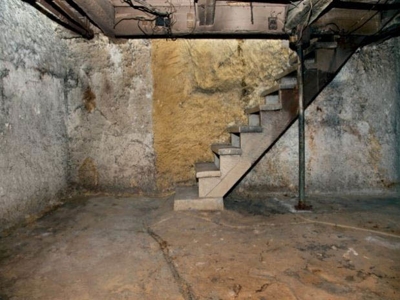
A musty odor in your basement can be more than just a nuisance; it can spread to affect other areas of your home and impact your belongings. Furniture, clothes, documents, and carpets are prone to absorbing and retaining musty smells, making it unpleasant and sometimes unbearable to stay in your home. The concerning part is that musty smells often indicate the presence of mold, which can lead to serious health and safety issues. However, there are effective ways to address the underlying causes and eliminate musty smells in your basement.
Causes of Smells In Basements
There are countless reasons why a basement may smell. Let’s take a look at some of the most common reasons:
Mold and Mildew: Musty smells in basements are commonly caused by mold and mildew, thriving in dark and damp environments. Beyond the unpleasant odor, they can cause damage to your home and pose health risks if left unattended.
Animals: Rodents and other nocturnal animals find refuge in basement crevices, and their waste and urine contribute to unpleasant odors. When these animals pass away in hidden corners, foul odors can linger.
Sewage: Sewage issues can result in distinctive and unpleasant odors. Plumbing problems are often the culprits, necessitating prompt attention from a plumber to ensure a smooth operation.
How to Get Rid of a Musty Smell In Your Basement
It's essential to keep your basement free of musty odors and the presence of mold to maintain a healthy home. If you smell mold in your home, follow these steps to assess the extent of the problem and create a plan for removal:
1. Check for condensation and water leaks. If you see any kind of water leak, stop it immediately to protect the integrity of your home's foundation and prevent water damage to your house and belongings. If the pipes in your basement show signs of condensation, wrap them with insulation to reduce the moisture that perpetuates musty odors.
2. Dry out the basement. It’s critical to dry out your basement. Use dehumidifiers to remove moisture from the air. If your basement has windows, keep them open for a few hours and use a fan to circulate fresh air into the room. Even without windows, you can try opening the basement door and placing a fan downstairs to increase air circulation.
3. Kill the mold. You may be surprised to learn that undiluted white vinegar has the ability to kill some mold spores. Wearing protective gear to prevent contact with the spores, pour straight vinegar into a spray bottle and heavily mist all affected areas. Keep windows open with air circulating, and let the mixture dry to help prevent continued mold growth.
4. Clean the air. You can freshen the air after mold removal in a number of ways. Once you've identified and addressed any condensation, leaks and other sources of moisture in your basement and thoroughly cleaned and dried the areas with mold growth, your basement should smell fresh again. After mold removal, freshen the air to get rid of the musty smell by using the following:
- Cat litter - Put cat litter in open containers throughout the basement. When changed regularly, the litter will absorb most of the musty smell in your basement.
- Baking soda - Like cat litter, baking soda can absorb the majority of musty smells. Baking soda can maintain absorbency for up to 3 months, depending on how strong the odor in your home is.
Turn To The Experts For Help
Protect your home and health from damaging mold infestations by reaching out to home mold removal experts like ServiceMaster Restore. We can check your basement to find the source of the musty smell and address the root of the problem. If the musty smell in your basement came from flooding in your home we can help you quickly and carefully get you back to normal.
Call the experts at ServiceMaster Restore at 1-800-RESTORE or reach out to the nearest ServiceMaster Restore location near you.
